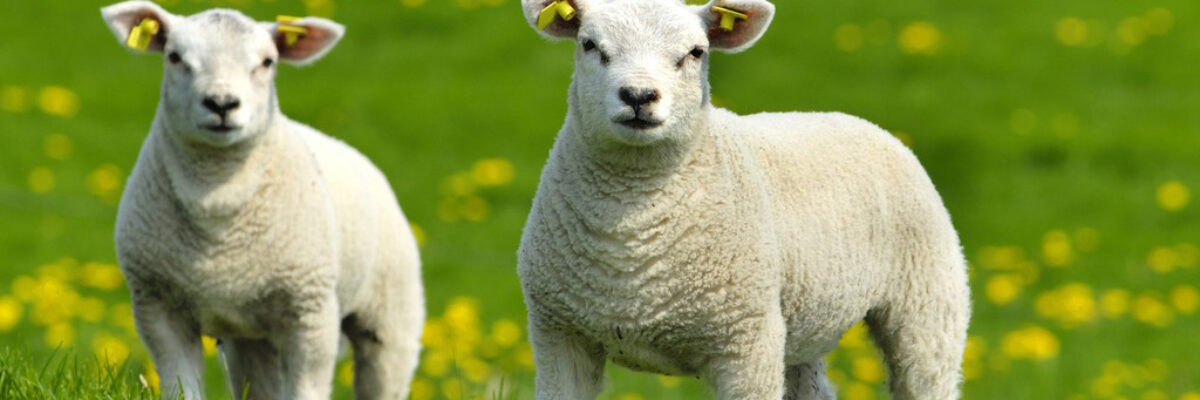Categories
Recent Posts
- Do these 7 things in spring pig breeding to reduce the number of pigs getting sick!
- Five ways to save money raising sheep!
- How to treat piglets without food? How do piglets lose weight without eating?
- In spring, the incidence of rumen food accumulation in cattle is high, pay attention to strengthen prevention and control!
- How to treat the fecal water of pig farms? These methods are worth learning
- What are the characteristics of black nose sheep? What food does black-nosed sheep not eat?
- Six things must be done to raise cattle in spring!
- What are the symptoms of cattle anthrax? Will cattle get sick after using anthrax vaccine?
- Summer is hot! How to prevent heatstroke and reduce the temperature of dairy cows?
- What is the reason for lack of manganese in cattle? What should cattle do if they lack manganese?
Four things to do well in raising lambs in winter

In raising lambs, it is important to do a good job in raising and management. In winter, the climate is cold, the body temperature regulation function of lambs is not perfect, the immunity and disease resistance are weak, and improper management can easily lead to diseases. If you want lambs to grow healthily, you must be able to raise them well. So, how to raise lambs in winter? It is suggested that sheep breeders should pay attention to the following four things:
1、 Eat colostrum in time
(1) The forestomach of lambs is not yet mature at birth, the microbial region has not been established, and the rumination function is not perfect. Therefore, on the day when a lamb is born, it must be allowed to eat the milk of the ewe, commonly known as colostrum. Colostrum is rich in protein, vitamins, minerals and other nutrients. Colostrum contains a lot of antibodies, but lambs themselves cannot produce antibodies. Eating colostrum in time is the key to improve the resistance and survival rate of lambs. Even if the ewe died of no milk or dystocia after delivery, let the newborn lamb eat the colostrum of other ewes, otherwise the lamb will hardly survive.
(2) Lambs should live with ewes within a week of birth, so that they can eat breast milk at any time to enhance the relationship between mothers and offspring. If it is difficult for lambs to have milk, artificial lactation should be carried out on time, according to the amount and temperature.
2、 Feed concentrate timely
With the rapid growth of lambs, the milk yield of ewes has decreased. In order to meet the nutritional needs of lambs, supplementary feeding is a necessary measure to increase the weight of lambs and enhance their disease resistance. So one week after the lambs are born, they should be taught to eat appropriate amount of fresh grass and leaves. After the age of 20 days, they can graze nearby and properly supplement the concentrate feed. Concentrated feed should be nutritionally comprehensive, easily digested and absorbed, and should be crushed. When feeding refined feed, it is required to feed less, add more frequently and do not leave any residue. When feeding green fodder, it should be chopped and mixed with refined fodder.
The proportion of refined feed is: 5kg corn, 1.5kg wheat bran, 2kg soybean meal cake, 1.5kg cottonseed cake, and appropriate vitamin. The supplementary feeding amount of concentrated feed: 75g/head/day at half month old, 100g/head at one month old, 200g/head at two months old and 250g/head at three months old.
3、 Cold proof and warm keeping
Lambs are very sensitive to changes in external temperature and have poor thermoregulation ability. After the lamb is born, let the ewe lick the lamb as soon as possible. If the ewe does not lick the lamb in time, use a clean rag to dry it manually. Warm keeping equipment shall be provided in winter, the ground shall be paved with soft hay, and the room temperature shall be kept above 5 ℃.
4、 Timely castration
After two weeks of birth, the healthy and healthy lambs with good body shape should be horn removed. In order to prevent fighting injury and abortion after adulthood, it can also reduce the occupied area of the feeding trough and facilitate management. Non breeding rams should be castrated one month after their birth. The castrated rams are gentle, easy to manage and fatten.
